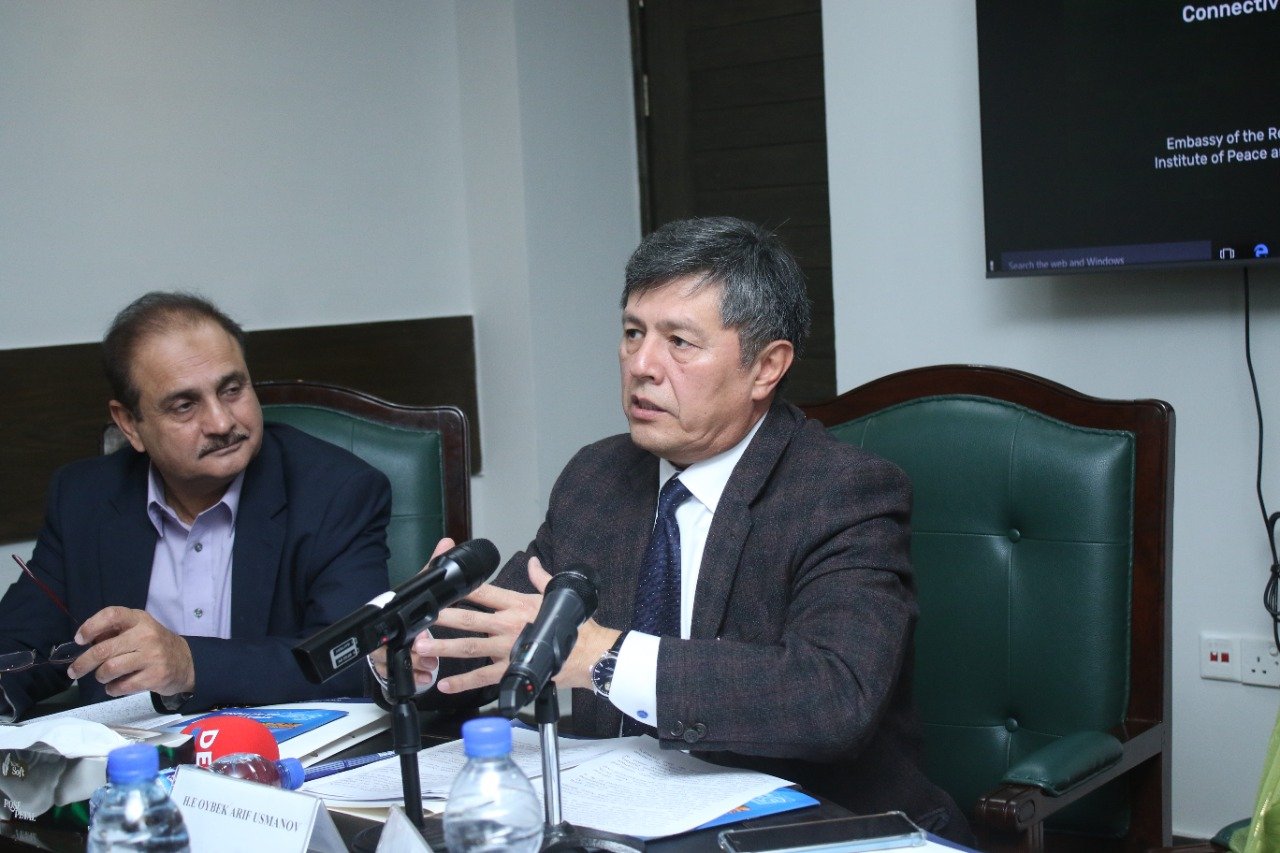Islamabad, 10 November 2022 (TDI): Regional connectivity between Central Asia and South Asia is very important and Uzbekistan is playing a vital role in cooperation and contributing towards regional harmony and stability through connectivity.
These were the remarks by the speakers during the Round Table conference on “Uzbekistan’s input in Building Regional Connectivity, Eurasia-South Asia and Beyond”.
Institute of Peace and Diplomatic Studies (IPDS) in collaboration with the Riphah Institute of Policy Studies and the Embassy of Uzbekistan to Pakistan organized the conference to highlight Uzbekistan’s commitment to enhancing connectivity in the Eurasia region.

In her opening remarks, Farhat Asif, President of IPDS, said the event was organized to revisit the important contours of the relations between Pakistan and Uzbekistan to further boost the ties between the two countries in terms of regional connectivity.
The Ambassador of Uzbekistan to Pakistan, Aybek Arif Usmanov in his keynote address reaffirmed Uzbekistan’s projects for the region’s development.
He mentioned the transit trade agreements between Pakistan and Uzbekistan signed in 2022, have a very positive impact on mutual trade.
Uzbekistan is implementing a comprehensive plan to enhance mutual trade between both Pakistan and Uzbekistan.
A railway project worth $5 billion between Pakistan, Afghanistan, and Pakistan is a milestone project to achieve greater regional connectivity and trade, the ambassador added.
The Ambassador of Uzbekistan highlighted that the Uzbekistan government wants to extend the Uzbekistan-Turkmenistan Gas Pipeline project and other energy supply projects in Central Asia to Pakistan and Afghanistan.
Additionally, the Uzbek Envoy congratulated Pakistan and Uzbekistan on trade between both countries reaching $150 million.
He further added that the President of Uzbekistan, Shavkat Mirziyoyev wants to exceed this figure to $250 million in the coming years.

On talking about SCO, he reiterated the SCO chair, Uzbekistan’s vital role in promoting regional connectivity as Uzbekistan this year successfully hosted the SCO leaders summit.
Moreover, he accentuated cooperation between Pakistani universities and Uzbekistan’s government and institutes for a better understanding of mutual concerns and youth building which can play an important role in concrete brotherly relations between Pakistan and Uzbekistan.
While Tazeen Akhtar, the Editor of Pakistan in the World expressed his views on Pakistan-Uzbekistan relations. He highlighted the cultural and religious linkage between both countries.
Likewise, he underlined the importance of connectivity in Eurasia, and South Asia for the development, peace, and prosperity in Afghanistan and South Asian countries mainly Pakistan as it will create many opportunities.
Moreover, he called Trans Afghan Railway a flagship project as Tashkent’s bid to diversify this Euro-Asian trade project to Pakistan and prioritize the excess of seaports in Southern Pakistan.
This route connecting Central Asia with Pakistan will be a game changer for the region’s future, he added. In closing remarks, Dr. Rashif Aftab, Director of Riphah Institute of Policy Studies praised Uzbekistan for its role in advocating Eurasia connectivity as SCO chair in 2022.
He further lauded Uzbekistan’s government and Ambassador Aybek Arif Usmanov for their optimistic behavior towards Pakistan-Uzbekistan relations and their input for different regional and trans-regional projects maintaining the connectivity between Pakistan and Uzbekistan.
Dr. Rashid Aftab also thanked all the speakers and attendees for joining and contributing to the roundtable and wished for the betterment of Pakistan-Uzbekistan relations.
The event was attended by foreign diplomats, prominent politicians, heads of think tanks and public organizations, universities of Pakistan, businessmen, and local media representatives.






